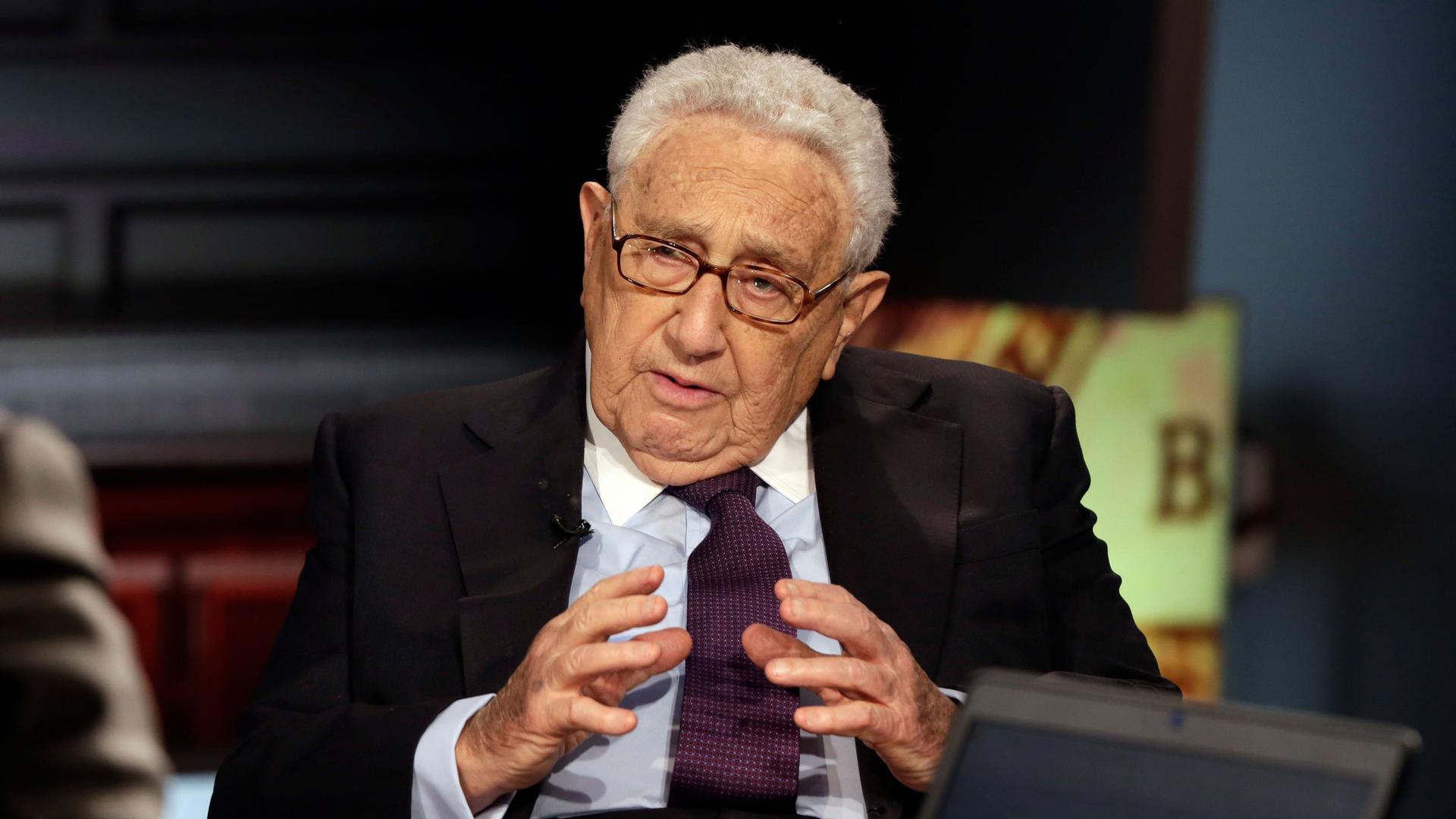To his fans, Henry Kissinger’s diplomatic achievements were amazing.
Kissinger is credited with opening up the United States up to China in 1971, easing hostilities with the Soviet Union in 1972, ending the Vietnam War in 1973. But to his critics, Kissinger will be remembered for secret bombings in Indochina, plotting coups and supporting military juntas from Pakistan to East Timor to Chile.
Few American statesmen have been as celebrated — and as hated — as Henry Kissinger. He died on Wednesday, Nov. 29, at the age of 100.
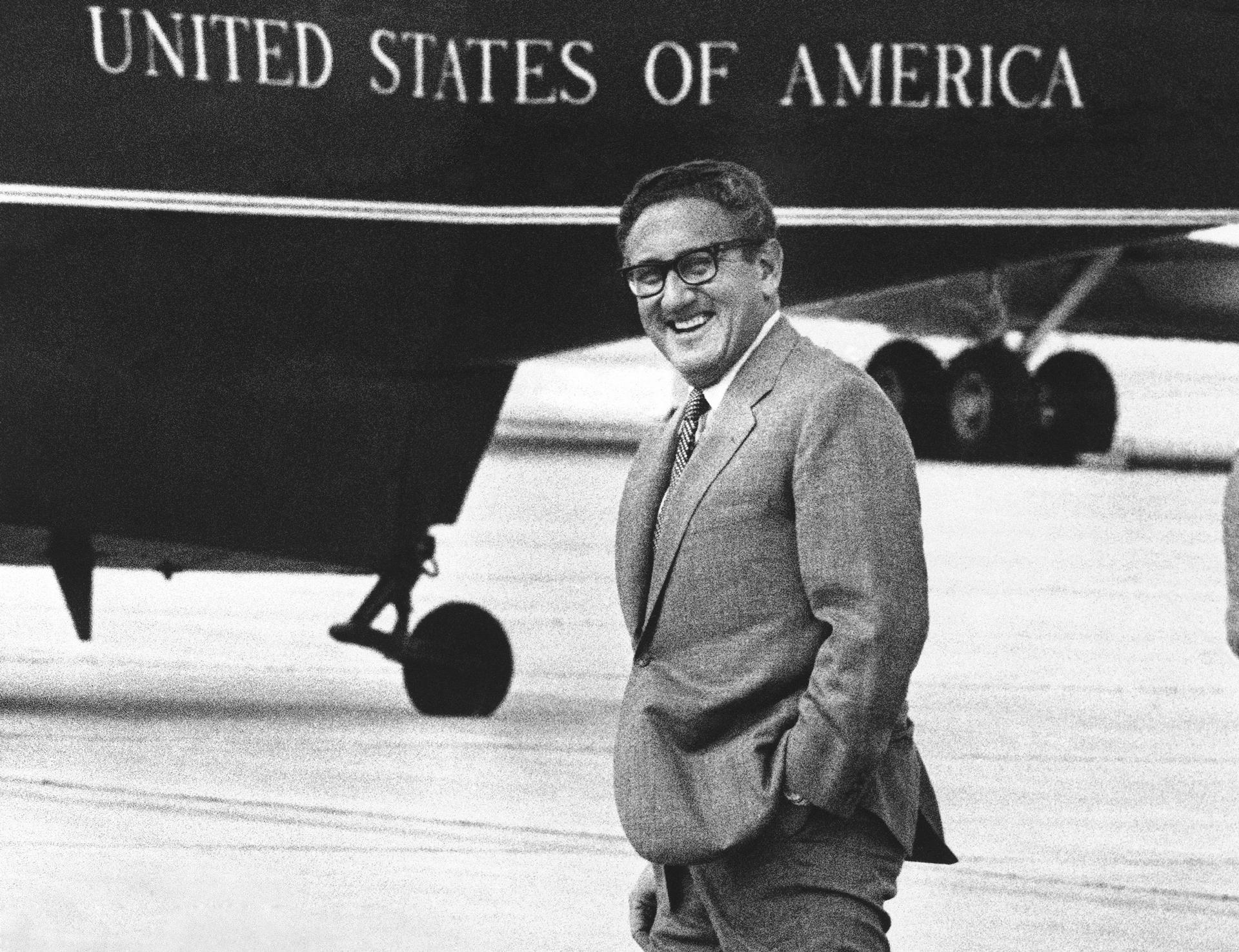
Heinz Kissinger was born in 1923 to an observant Jewish family and in the German city of Firth. His family fled the Nazis in 1938, settling in New York City. Heinz became Henry, but he never lost his thick German accent. He spent his late teens studying and working part time in a shaving brush factory.
In 1942, Kissinger was drafted into the US Army and sent to Germany, where he did counterintelligence work and helped to liberate Ahlem concentration camp in 1945.
After the war, he returned to his hometown and learned that most of the 3,000 members of the Jewish community there had been slaughtered, including members of his own family. Kissinger didn’t usually speak about the Holocaust and the impact it had on him, but he alluded to it in a 1982 interview with the BBC:
“Consciousness that societies can take a very evil turn. This separates me from many Americans who have never seen it, can’t imagine it,” he said.
Stephen Walt, a political scientist at the Harvard Kennedy School of Government, said this made Kissinger hypervigilant. “I think you would come away from that, as many people did — not just Kissinger — with a sense that one had to be eternally watchful, that the wolf was always at the door.”
Walt added that Kissinger held a deeply pessimistic — perhaps even slightly paranoid — view of the world. “He was willing to overlook moral considerations for the sake of preserving order,” Walt said.
In 1947, Kissinger enrolled at Harvard on the GI Bill. He became a professor there in 1957, and in 1968, Richard Nixon tapped him to be his national security adviser.
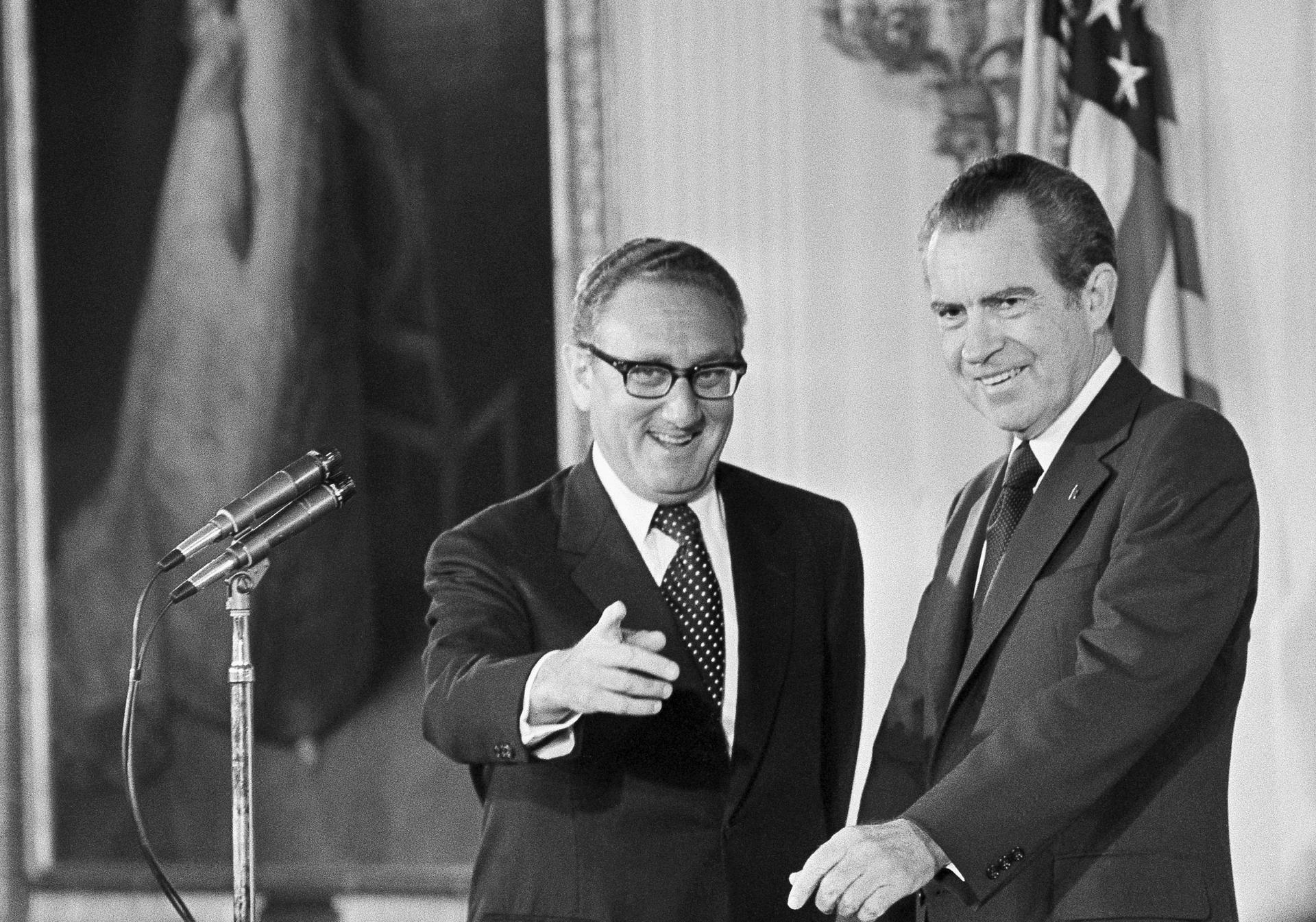
Nixon described him as one of the world’s most “major scholars” of foreign policy at the time. By this point, Kissinger had formed a theory of world affairs, a foreign policy doctrine called realism.
“Kissinger believed, I think, largely, that you deal with the world as it is, not as you wish it to be or as you are trying to reconstruct it,” said Thomas Schwartz, the author of “Henry Kissinger and American Power: A Political Biography.”
“In that sense, he was far more willing to deal with the communist powers that existed, the Soviet Union and China,” Schwartz said.
When Nixon and Kissinger came into office, the US and China hadn’t spoken in decades, according to Schwartz.
“China in many respects was what we would now call a rogue state, a country we had no relations with. We thought it was illegitimate. We recognized the government on Taiwan as the real legal government of China, which was basically a very ideological position to take,” Schwartz explained.
This is where Kissinger’s realism came into play. Kissinger recognized that the Chinese government commanded power and control over an enormous country and that it had to be brought into the international system, Schwartz explained.
At the time, China and the Soviet Union were bitter enemies. By the 1960s, Kissinger and Nixon realized they could pit China against the Soviet Union and create a balance of power in the region. Kissinger went on a secret mission to China in 1971. Nixon followed with a highly public visit in 1972, setting in motion the greatest diplomatic coup of the age — and arguably concluded the Cold War in East Asia.
But Kissinger’s realism found a darker expression in Vietnam.
Back in 1968, when Richard Nixon was running for president, he made his top foreign policy priority to bring “an honorable end” to the war in Vietnam.
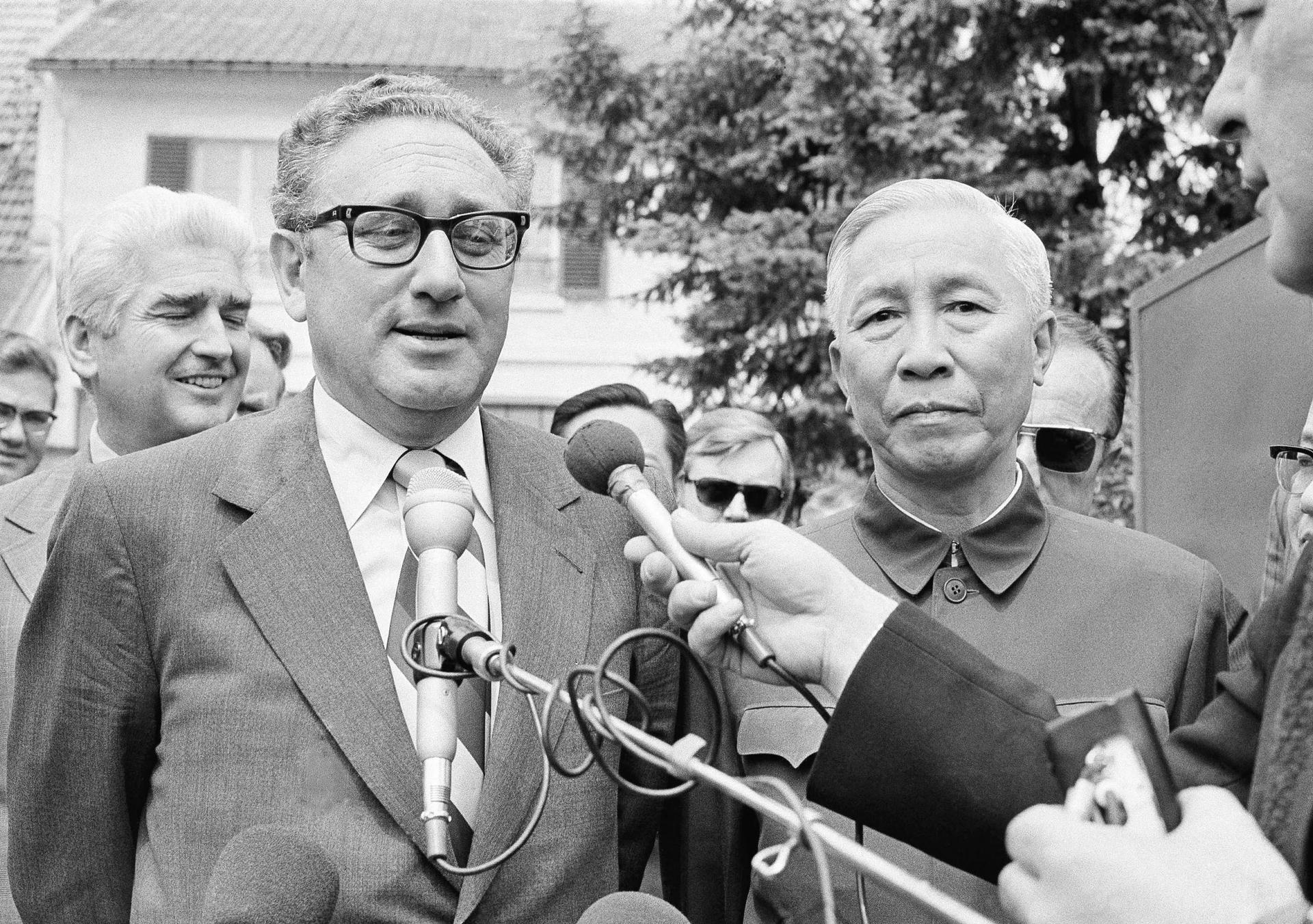
Once elected, he continued to talk about peace with honor. But in private, Nixon and Kissinger conspired to prolong the war. They wanted to inflict enough damage on the North Vietnamese to get more concessions during peace negotiations.
“Kissinger’s great fear was that if anyone ever thought the United States was weakening, they would abandon Washington,” professor Stephen Walt said. “They would realign with the communist world, and the United States would end up isolated and alone.”
In 1969, Nixon and Kissinger expanded the war into Cambodia and then lied about it to the American people. They directed a bombing campaign in Cambodia that killed an estimated 100,000 civilians and opened the door to the genocidal rule of the Khmer Rouge.
It was this and Kissinger’s support of a military coup in Chile that led to the loathing of Henry Kissinger, especially on the left. Most famously, in 2000, one polemicist Christopher Hitchens wrote a book called “The Trial of Henry Kissinger,” accusing him of war crimes and crimes against humanity.
And this notion of Kissinger as a “war criminal” stuck, said Barbara Keys, who studies Henry Kissinger’s legacy.
“This whole ‘war criminal’ thing stuck to Kissinger, partly because he seemed particularly callous. There was never any regret for the many, many people who died in the course of the policies that he advocated and urged Nixon and later Ford to pursue,” said Keys, who is a history professor at Durham University in the United Kingdom.
But over time, Keys said, Kissinger’s notoriety faded and his star rose.
“There is a moment when Kissinger’s reputation is definitely at its lowest, but because it’s been so high, it only takes a few dents and then it kind of rebounds,” she said.
In the final decades of his life, Kissinger continued to advise companies, governments and the public at large. He opined on world events on national TV past his 100th birthday. He was a sought-after voice on everything from 9/11 to the so-called Arab Spring to the war in Ukraine.
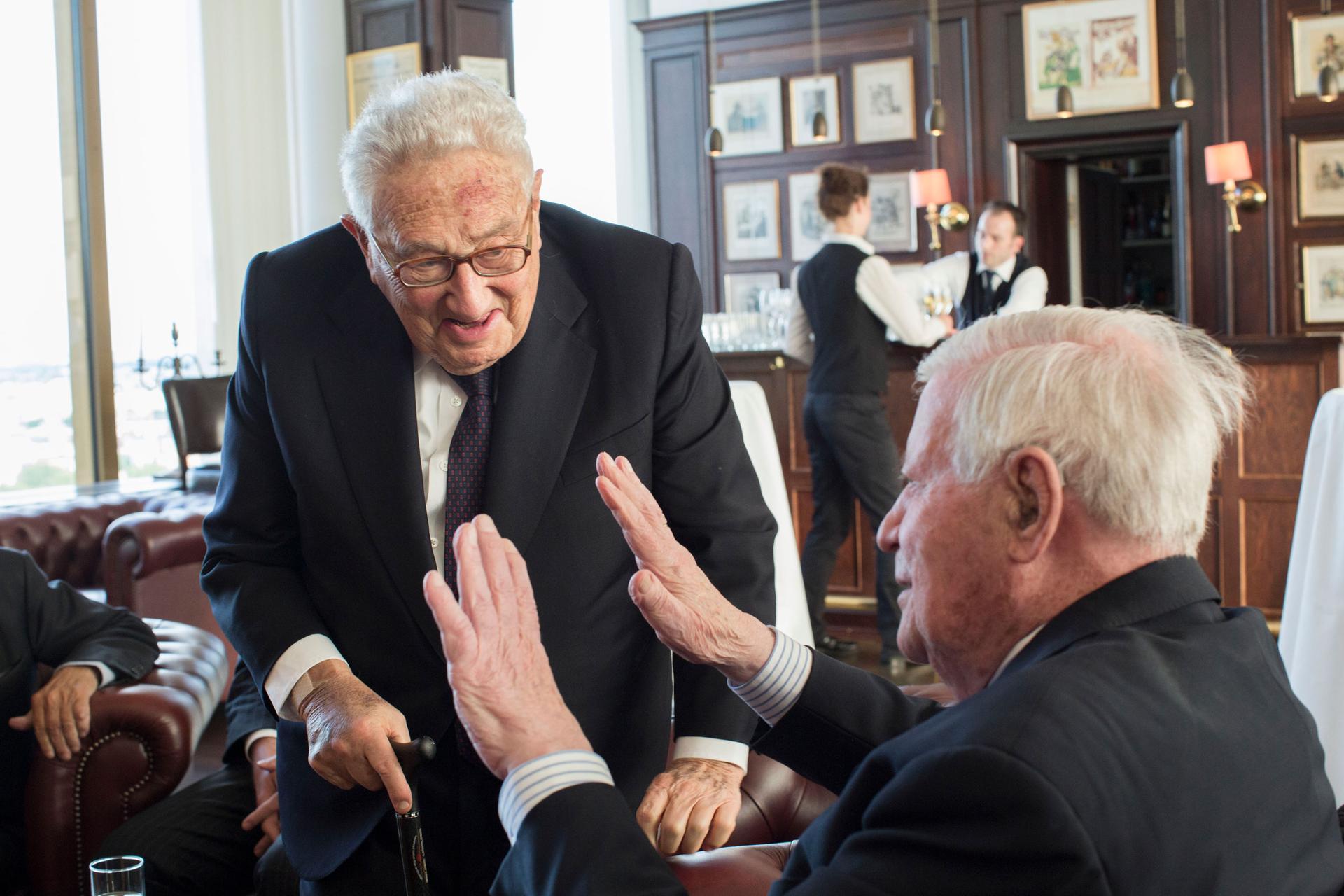
Kissinger was still offering commentary as recently as seven weeks ago, just after Hamas’s deadly attack on Israel.
Stephen Walt said no one has ever worked harder or longer to acquire, build and sustain influence than Henry Kissinger, who continued to publish influential books on foreign policy well into his 90s.
“He also was undoubtedly the most successful networker we’ve seen in the past century [with an] enormous Rolodex, an enormous array of friends, contacts. He simply outworked out, competed, outmaneuvered out, charmed just about anybody else,” Walt said.
And as a result, scholars, pundits, activists and foreign policy buffs will continue to examine and debate Henry Kissinger’s legacy for many years to come.
The World is an independent newsroom. We’re not funded by billionaires; instead, we rely on readers and listeners like you. As a listener, you’re a crucial part of our team and our global community. Your support is vital to running our nonprofit newsroom, and we can’t do this work without you. Will you support The World with a gift today? Donations made between now and Dec. 31 will be matched 1:1. Thanks for investing in our work!
